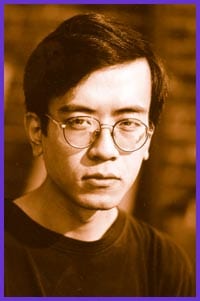Glad Day Bookshop has lost its constitutional challenge to the Ontario Film Board’s censorship powers.
An Ontario Court Of Justice decision Monday upheld the constitutionality of the film review process in this province.
In his ruling, Judge Bruce Young dismissed the constitutional challenge of the store, convicting it and its owner John Scythes of offering for sale a video not approved by the OFRB.
Young rejected Glad Day’s right to challenge the OFRB’s regulations and fee structure because the store refused to submit to the original review process for adult video Descent and therefore forfeited its right to challenge that process.
Glad Day had argued that the $4.20 per minute screening fee charged by the board amounted to a tax on freedom of expression and discriminated against those who sell marginalized material.
Glad Days lawyer Philip Campbell says the store had a “very powerful” constitutional argument, but the Crown “tried to insulate itself from that challenge by creating a series of technical and legally incorrect impediments.”
Judge Young accepted the Crown’s position that the store did not have the right to question a process they did not participate in; he refused to rule on whether or not that process itself is lawful.
Owner John Scythes says he is disappointed by the ruling.
“We thought the judge would at least look at the fee structure,” he says.
He says the store will appeal.
Glad Day has spent approximately $50,000 on the trial and expects to spend another $25,000 on the appeal.
Sentencing was put over until February, at which time the store faces up to a maximum of a $100,000 fine under the Ontario Theatres Act. Scythes says a large fine could bankrupt his store.
Glad Day was charged in August, 2000, after three undercover agents from the OFRB entered the store and purchased an unstickered copy of Descent.
Glad Day admitted from the outset that it was guilty of selling an unapproved video, but argued in court they were not guilty of a crime because the board’s regulations and fee structure were unconstitutional.
Since the charges were laid, Glad Day had kept unreviewed product on its shelves. They’re removing it now.
“The selection won’t be any different than Rogers or Blockbusters as a result of the decision,” says Glad Day Manager Toshiya Kuwabara
OFRB Chairman Robert Warren said in court that the board was created in 1911 as a censorship body to protect women and children from harmful influences, and that the board’s primary purpose is still the prevention of harm.
He agreed under cross-examination that the board’s powers were effectively still censorship powers, but said the banning of films only happens in extreme cases.

 Why you can trust Xtra
Why you can trust Xtra


